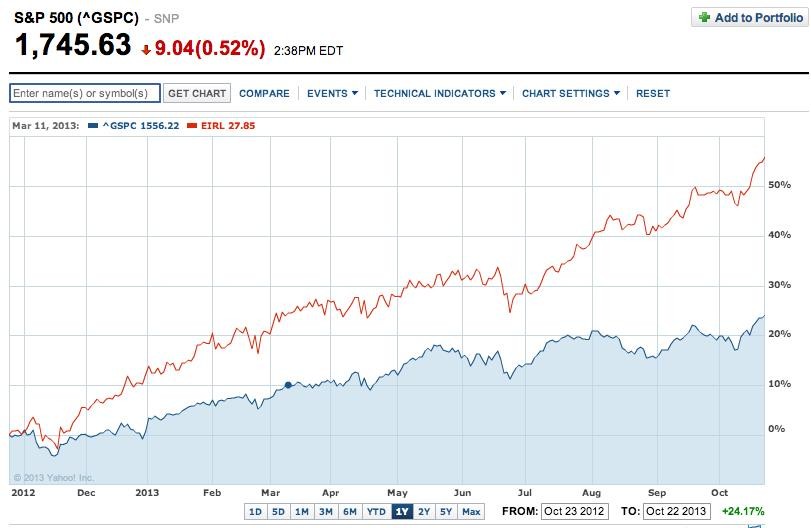Should You Invest In An ETF
Post on: 14 Июнь, 2015 No Comment

ETFs have become popular investment options since they become available in the U.S. in 1993. Learn if ETFs are right for your investment portfolio.
An exchange-traded fund (ETF) is an investment fund that is assembled like a mutual fund, but trades like a stock. An ETF can hold any number of companies and assets that follow a particular index, but can be purchased and traded just as you would a stock in a single company. So, instead of purchasing a share of stock in, say, Microsoft, you can purchase a share of stock in a technology index ETF which holds hundreds of technology companies under one fund, one of which could be Microsoft.
You can purchase shares of ETFs for nearly anything you wantthere are ETFs that track bonds, the S&P 500, the technology sector or even Swiss chocolate. Before you dive in, however, be sure to understand the pros and cons of ETF investing.
The benefits of investing in an ETF
Lower costs. Most ETFs are not actively managed (unlike a mutual fund) and tend not to undergo much buying and selling within the funds holdings. In addition, annual expenses for ETFs can be 2 percent to 3 percent less than mutual funds.
Ease of buying and selling. With an ETF, you are purchasing a share within a fundmuch like you would purchase a share within a company when buying stocks. As a result, you can buy and sell your ETF shares with the same ease you would with stocks. All you need is a discount brokerage account. (However, as with any investment strategy, buying for the long-term is always your best bet.)
Tax advantages. Because ETFs generally have low turnover of the holdings within the fund, their capital gains are usually relatively lowmeaning less taxes for you. You will be taxed on any gains youve realized when you sell your shares, but will have far fewer tax events to report than you might with mutual funds.
Portfolio diversification. An ETF helps spread your investment over a large number of companies, possibly reducing the volatility in your investment portfolio. It can also provide you with exposure to an assortment of markets.
No minimums. If you have limited funds to invest, an ETF could be the right tool for you. There is no minimum number of shares you must purchaseyou can buy just one share if you want.
The downside of investing in an ETF
Funds can close. The investment company that puts together the ETF typically requires a certain amount of assets to be invested in the fund to make it worthwhile. If the fund doesnt generate enough interest or assets, then it is usually shut down. While investors dont lose their money, they may have to pay additional fees to transfer funds to a new investment, as well as taxes on any capital gains they realized on the original investment.
Funds can miss their target. According to a 2009 study by Morgan Stanley, ETFs missed their targets by an average of 1.25 percentage points. (This means that the ETF did not perform as well as the index or product it was following.) This discrepancy, known as a tracking error, has been growing, although some attribute it to ETFs that follow obscure and hard-to-trade investment categories.
Funds can be leveraged. Leveraged ETFs use debt and complicated investments in an attempt to make large, short-term gains. Leveraged ETFs are highly volatile and should be avoided as part of a long-term investment strategy.
When determining if an ETF is a good fit for your investment portfolio, think about your overall investment goals, strategy, and other investment options available to you. If youre still unsure if an ETF is right for you, consult with a financial advisor .
This article contains general information. Individual financial situations are unique; please, consult your financial advisor or tax attorney before utilizing any of the information contained in this article.
Related Articles:
Source: Wikipedia, The Motley Fool, The Wall Street Journal














